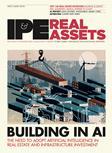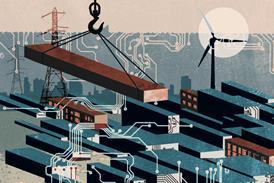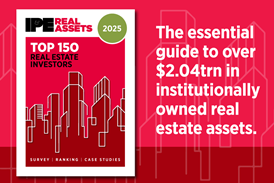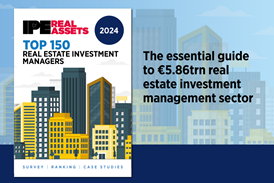Italian real estate is set for more asset sales as a result of yesterday’s Asset Quality Review (AQR) by the European Central Bank (ECB). The review identified €136bn of non-performing loans held by European banks, 18% more than the banks’ own estimates.
Across Europe, the sale of loan portfolios is likely to accelerate after 25 lenders failed a comprehensive assessment that combined the ECB’s results with stress tests carrried out by the European Banking Authority (EBA). The results, announced yesterday, found a capital shortfall of €25bn.
Twelve of the 25 banks have already covered their capital shortfall by raising €15bn in new capital this year. The remaining banks with shortfalls have two weeks to draw up solutions.
On a country level, Italy dominated the results, with four banks – Monte dei Paschi di Siena, Banca Carige, Banca Popolare di Milano and Banca Popolare di Vicenza – needing to raise additional capital.
Chris Holmes, head of EMEA debt at said the outcome was not surprising. “[It] shines a light into the dark corners of Italian real estate lending,” he said. “Of all the key European markets, Italy is furthest adrift in tackling the issues.”
Jos Short, Internos Global Investors founding partner and executive chairman, said the sale of loan portfolios would accelerate – particularly in Italy.
Short that AQR, which began in November last year, is essential to avoid “Japanese-style stagnation”. Writing in IP Real Estate last month, Short said exposing ”unknown black holes” was already having an effect on lending and that exposing them is the ”first step to reform”.
Today, he said: “Banks now have two options; raise capital or sell loan portfolios. Or both.”
Short said with portfolios marked to market, and “plenty of equity around”, advisers will be pushing banks to sell, citing strong demand. “Hopefully, they can offload at prices which won’t impact too baldy on capital bases.”
Neil Blake, head of EMEA research, said values in Italy have “at least shown signs of levelling off”. He added: “Italian banks still look likely to try and sell off some of their non-performing loan books – rather than issue new capital to plug the gap.
”They have tended to only sell off low-value, unsecured non-performing loan books and, now that the AQR has cleared the air, this looks set to change.”
AQR has been criticised for not including a wider range of potential downsides – such as deflation in the euro-zone and the potential impact of sanctions on Russia. The ECB argues that the review reflects the concerns at the time when the tests were devised. It also says the falls in GDP in the stress test scenario are still sufficient to reflect a very severe downside.
Blake said the response was “quite reasonable”.
He added: “The benefit of the AQR is that the true extent of banks’ nonperforming loans is now out in the open and banks can now consider setting off parts of their loan books in order to meet the capital shortfall. Before the AQR, selling off loan books would have meant admitting that they were not properly valued in the banks accounts.
“On the back of this, and ongoing improvements to real estate values, we can expect to see an increase in loan sales over the next year.”
In Ireland, Permanent TSB – one of the banks identified by the ACR for having an €850m shortfall, has started selling off assets, announcing the sale of two loan books. Blake says Permanent TSB will have been encouraged by a pick-up in property values in Ireland.
Property analysts at JP Morgan said more “peripheral assets” would to come to the market.
“We could see a spike in investment volumes for property sector towards the end of the year,” JP Morgan said in a note. “This represents an opportunity for the European listed sector to buy in at attractive price.
“Even if a real economic recovery is still potentially some years away, the listed sector could have an opportunity to enter portfolios at the right price and make attractive returns from a low point in the cycle.”
The AQR process was a “material positive” and implied “limited capital raising”, JP Morgan said. Taking a wider view of the stress test, a €9.5bn shortfall for 13 banks posed “very limited capital risk”.
Henri Vuong, director of research and market information at INREV, said the ”next big question” for the real estate sector is what action the ECB will now take in light of the results - and how quickly.
”If it decides to force lenders to offload their balance sheets at a time when the economic recovery in Europe is still fragile then this could stifle recovery in the property markets, and have a domino effect on performance across all forms of real estate investment,” Vuong said. ”And what of the lenders that have passed the test? Overall Europe’s banking system remains weak; European banks are cautiously lending again but remain reluctant to expand lending at a time when capital is scarce and the quality is low, while demand for credit is weak.”
The European banking system is, Vuong said, ”highly fragmented”.
”If no affirmative action is taken, this could lead to a double whammy of forced deleveraging and even more limited new lending, further prolonging the recovery in European commercial real estate markets.”








